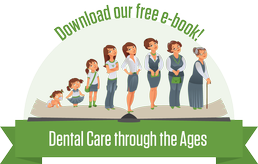By Alissa Gavrilescu on Dec 15, 2015 @ 09:05 AM
One of the big decisions a new mother faces is whether or not to breast-feed her baby. If you’re considering breast-feeding, here are a few things you’ll want to know about nursing and dental health:
Oral Health and Nursing Mothers
- Mothers who breast-feed need to have enough calcium in their diet or they risk bone loss around their gums and teeth.
- Breast-feeding mothers who need dental work that requires medication should alert their dentist if they are nursing. This will ensure they are given medication that will not affect the baby if passed on through breast milk.
Oral Health for Nursing Babies
- May allow for a better bite - A recent study from Pediatricsreported that babies who are exclusively breast-fed for their first six months are 72 percent less likely to have crooked teeth. Breast-feeding also reduces the risk of open bites, cross bites and overbites. While a child’s likelihood for braces is impacted by breast-feeding, there are other factors that also play a part, including: extended use of a pacifier, finger or thumb sucking and family genes.
- Reduces the risk for bottle rot (baby bottle tooth decay) - Another benefit of breast-feeding is it reduces the risk of baby bottle tooth decay. This form of decay usually occurs in babies who go to bed with a bottle filled with formula, fruit juice or milk. The top front teeth are the most affected, though it can occur in other teeth.
- Cavities - Babies can still get cavities because breast milk contains sugar, just like formula. Starting several days after birth, it's recommended that a baby's gums should be wiped with a clean, moist gauze pad on a daily basis. As soon as the first tooth appears, it's time to start using a soft baby toothbrush and brushing twice a day with a grain size amount of fluoride free toothpaste.
- Babies don't need to be weaned once they get teeth – You don’t have to stop breast-feeding because your baby's teeth have come in. In fact, the American Academy of Pediatrics recommends breast-feeding the entire first year of a baby's life. However, each mother and baby is unique and this may not be possible in all cases.
To learn more about the health benefits for both you and your baby, contact your doctor for more information.





comments